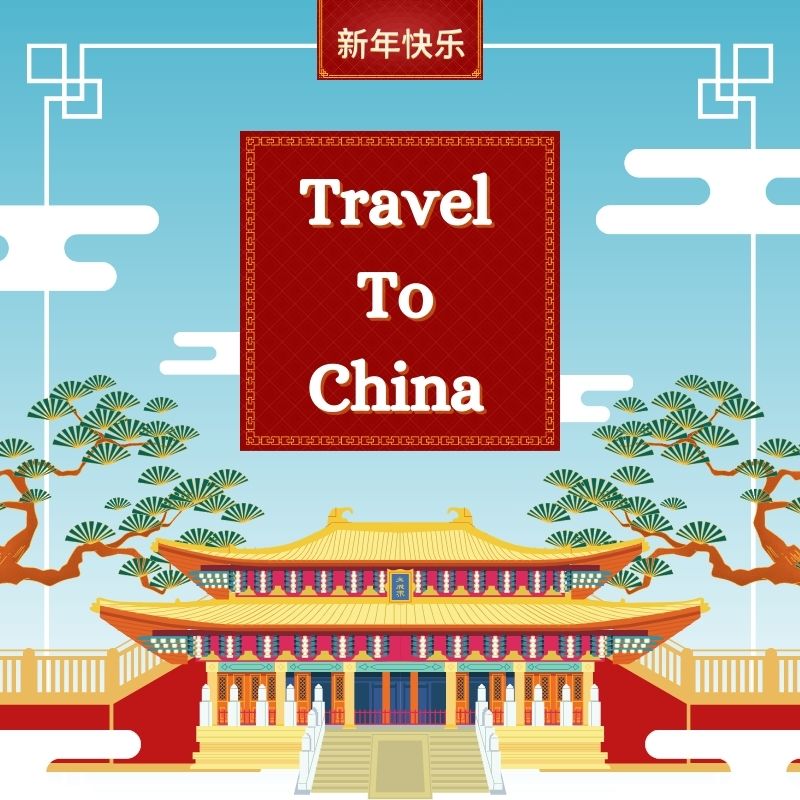China is a land of ancient traditions, breathtaking landscapes, and modern wonders. From the Great Wall and Forbidden City to vibrant cities like Beijing and Shanghai, traveling to China offers a unique blend of history, culture, and innovation. Whether you’re drawn to its world-famous cuisine, scenic countryside, or rich heritage, a journey to China promises unforgettable experiences.
Travel to China

Traveling to China opens the door to one of the world’s most fascinating destinations. Known for its rich history, diverse culture, and stunning landscapes, China offers something for every traveler. From exploring ancient landmarks to experiencing modern city life, a trip to China is both exciting and unforgettable.
1. Understand China’s Entry Requirements
Before you travel to China, ensure you have a valid passport and obtain a Chinese tourist visa (L-visa). The visa process can take time, so apply at least one month in advance. Also, make digital and physical copies of your documents.
Check the latest entry requirements, especially regarding vaccinations, COVID-related policies, and travel insurance. Having these sorted reduces stress upon arrival.
2. Language and Communication Tips
While major cities like Beijing and Shanghai may have English signage, most of China communicates in Mandarin. To make your travel to China easier:
- Download translation apps like Pleco or Google Translate
- Learn basic Mandarin phrases like “hello” (你好 – nǐ hǎo) and “thank you” (谢谢 – xiè xiè)
- Have hotel names and addresses written in Chinese for taxi drivers
Understanding basic language etiquette shows respect and can enhance your travel experience in China.
3. Best Time to Travel to China
Timing your travel to China well can enhance your overall experience. The best seasons are:
- Spring (March–May): Moderate temperatures and blooming nature
- Autumn (September–November): Cool weather and fewer crowds
Consult your travel agent and avoid traveling during Chinese New Year or Golden Week (early October), as these periods bring extreme domestic tourism and many closed services..
4. Explore Major Cities and Hidden Gems
Your travel to China isn’t complete without exploring both urban and rural highlights:
- Beijing: Visit the Great Wall, Forbidden City, and Temple of Heaven
- Shanghai: Enjoy the skyline, The Bund, and modern culture
- Xi’an: Witness the Terracotta Warriors
- Chengdu: Home of the Giant Pandas
- Guilin & Yangshuo: Breathtaking karst mountains and river cruises
For a deeper cultural experience, consider smaller villages like Lijiang, Dali, or Fenghuang.
5. Embrace Chinese Etiquette and Customs
Respecting local culture is essential when you travel to China. Here are a few cultural dos and don’ts:
- Do greet with a slight nod or handshake
- Do accept things (like business cards) with both hands
- Don’t point fingers at people
- Don’t stick chopsticks upright in a bowl of rice it’s associated with funerals
Showing cultural sensitivity fosters personal growth, builds rapport, and enhances your overall experience.
6. Cash, Payments, and Internet Use
China’s payment landscape is largely cashless. Alipay and WeChat Pay dominate, even among street vendors. Tourists can now use Alipay and link international credit cards for convenience.
Currency Tip: Carry some yuan (CNY) for use in smaller towns or transportation.
Internet Tip: Many Western apps (Google, Facebook, Instagram, etc.) are blocked. Download a VPN and ensure email end-to-end encryption before you travel to China for secure access.
7. Public Transportation and Getting Around
China has one of the most efficient transportation networks in the world:
- High-speed trains connect cities efficiently (book early during peak seasons)
- Metro systems in major cities are clean, fast, and tourist-friendly
- Didi (China’s Uber) is a reliable ride-hailing app download the English version
Tip: Always have your destination written in Chinese when using taxis or asking for directions.
8. What Not to Do While Traveling in China
Cultural respect goes both ways. Here are some things to avoid:
- Don’t talk about politically sensitive issues (e.g., Tibet, Taiwan)
- Don’t disrespect local temples or shrines dress modestly and behave quietly
- Don’t expect Western-style bathrooms carry toilet paper and hand sanitizer
- Don’t tip except in high-end restaurants, it’s not common
- Don’t be overly loud in public spaces it may be seen as rude
Traveling with cultural awareness ensures a more respectful and enriching visit.
9. Enjoy Chinese Cuisine Mindfully
Chinese food varies by region. Don’t just stick to fried rice and dumplings! Explore:
- Sichuan cuisine: Spicy hotpot and mapo tofu
- Cantonese cuisine: Dim sum and roast duck
- Northern cuisine: Noodles and buns
Tip: Master the art of chopsticks or ask for a spoon. Be adventurous, but know your dietary limits.
10. Health and Safety Tips
To stay healthy and safe during your travel to China:
- Drink bottled water avoid tap water
- Pack medications and carry prescriptions
- Be cautious with street food; eat where locals eat
- Stay updated on air quality if visiting major cities like Beijing
Having travel insurance is highly recommended for peace of mind.
FAQs:
1. Is China safe for tourists?
Yes, China is generally safe for travelers. Petty theft can happen in crowded areas, so stay alert. Major cities have strong police presence and low violent crime.
2. Can I use my credit card in China?
Credit cards are accepted in hotels and upscale restaurants, but mobile payments like WeChat Pay and Alipay are far more common. Carry some cash too.
3. Do I need a VPN to access the internet in China?
Yes, most Western apps like Google, Instagram, and WhatsApp are blocked. Download a reliable VPN before you arrive.
4. What is the best way to get around China?
High-speed trains are the most efficient way to travel between cities. Intra-city travel is easy via metro systems and Didi (Chinese Uber).
5. What should I avoid when traveling in China?
Avoid political conversations, tipping in casual settings, sticking chopsticks upright in rice, and assuming everyone speaks English.
Conclusion:
Your travel to China will be unforgettable if you combine cultural respect, smart planning, and an open mind. From the rich history of the Great Wall to the electric streets of Shanghai and tranquil villages in the countryside China offers something for every kind of traveler.
By understanding what to prepare, how to navigate social customs, and what to avoid, you’ll not only stay safe and respectful but also enjoy a deeper, more meaningful journey.
So pack your bags, brush up on your Mandarin, and get ready for the adventure of a lifetime!Travel to China: What First-Time Visitors Must Know

